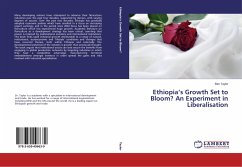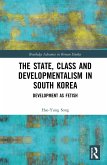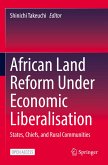Many developing nations have attempted to advance their floriculture industries over the past four decades, supported by donors, with varying degrees of success. Over the past two decades, Ethiopia has gradually adopted economic policies which have resulted in a focus on increasing export earnings, and in the period since 2004 focus has been placed on floriculture which has experienced huge growth. Academic literature on floriculture as a development strategy has been critical, asserting that power is retained by multinational investors and international institutions. This book finds rapid industrial growth attributable to a range of natural, institutional, socioeconomic and 'lifestyle' conditions and changes that have occurred therein, both within Ethiopia and externally. The developmental potential of the industry is greater than previously thought. The book argues that institutional actors can best secure the benefits from engaging in global production networks by targeting industries in which they have a competitive advantage, manufacturing territorial embeddedness amongst investors in order spread the gains and risks involved with industrial specialisation.
Bitte wählen Sie Ihr Anliegen aus.
Rechnungen
Retourenschein anfordern
Bestellstatus
Storno








